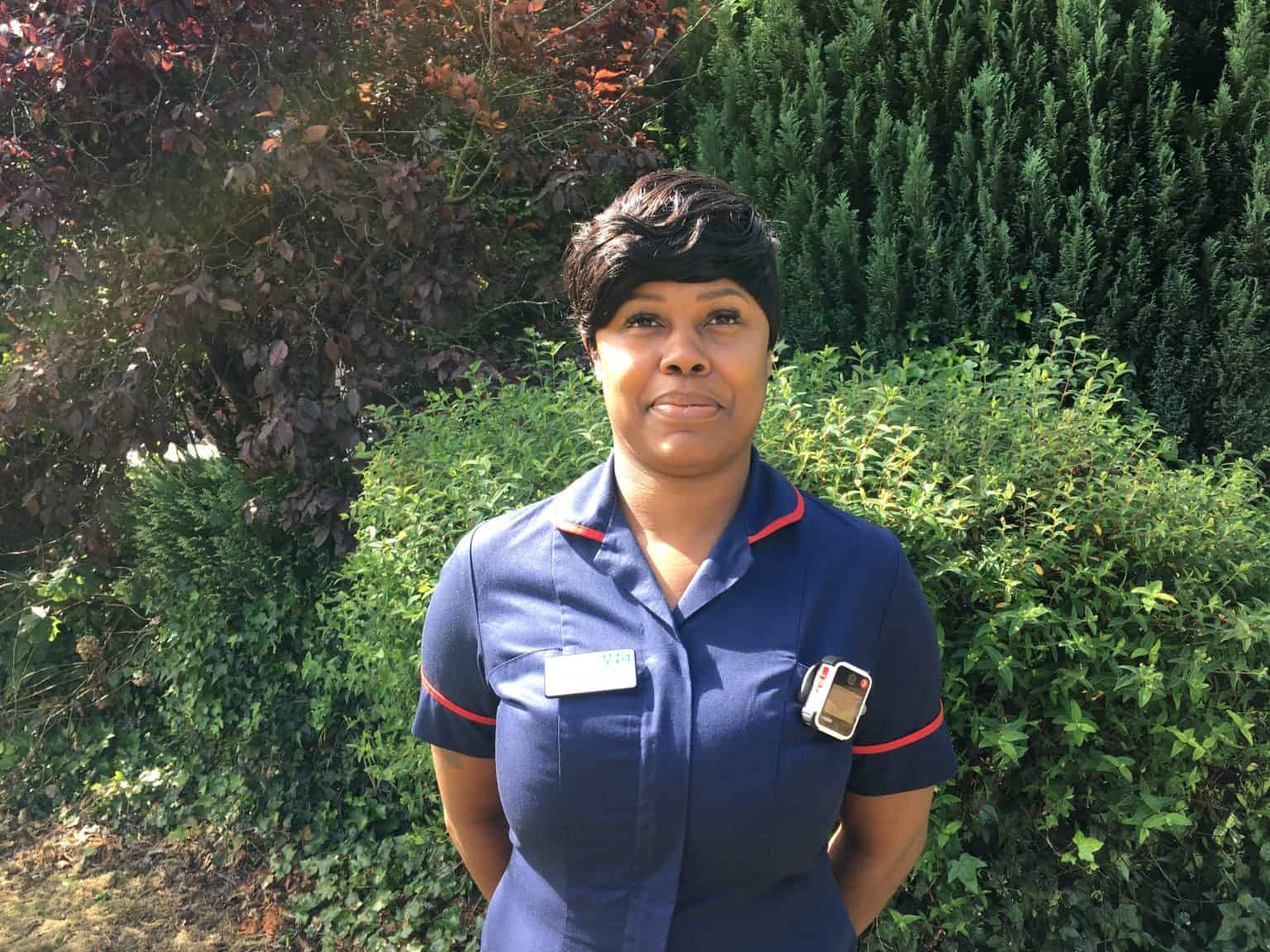
Clinical staff in some services in our organisation will trial the use of new body worn video (BWV) camera technology from today (2 June) in a pilot to deter acts of antisocial behaviour.
The cameras, commonly used across the country in acute hospital settings have been commissioned as part of the measure against violence and aggression, to reduce the likelihood towards patients and staff.
They are intended to help prevent acts of violence and aggression, but can be activated should a member of staff feel the need to record an incident that compromises the safety of other people.
The cameras are the size of a smartphone and are attached to the uniform at chest height. They will record digital images in the same way as traditional CCTV, and also record sound. The data is kept for 31 days unless it is deemed necessary for a criminal prosecution. The footage can also be used for learning to see if an incident could have been handled differently.
The BWV cameras will only be switched on when there is likelihood that evidential footage will be captured, and the staff member will alert the perpetrator prior to activating the camera. Footage from BWV cameras can be used to provide strong evidence in court. The cameras are intended to act as a robust deterrent to antisocial behaviour and help detect and evidence crime.
Information about the use of BWV Cameras is on display and shared with patients in the areas where the pilot is operating.
Patients and members of the public are asked to complete a survey to share their views about the use of BWV cameras in healthcare settings.
To complete the survey please go to: https://www.surveymonkey.co.uk/r/body-worn-camera-survey
Pictured above: Natalie Whitton, Matron for Primary Care, Community and Therapies, wears a body worn video camera.

